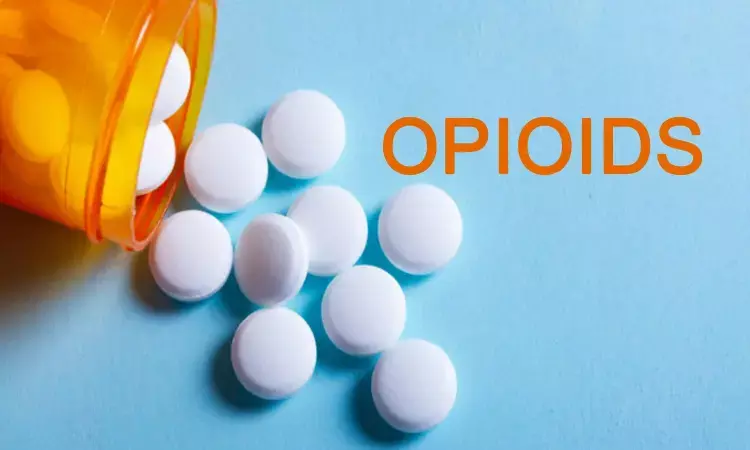- Home
- Medical news & Guidelines
- Anesthesiology
- Cardiology and CTVS
- Critical Care
- Dentistry
- Dermatology
- Diabetes and Endocrinology
- ENT
- Gastroenterology
- Medicine
- Nephrology
- Neurology
- Obstretics-Gynaecology
- Oncology
- Ophthalmology
- Orthopaedics
- Pediatrics-Neonatology
- Psychiatry
- Pulmonology
- Radiology
- Surgery
- Urology
- Laboratory Medicine
- Diet
- Nursing
- Paramedical
- Physiotherapy
- Health news
- Fact Check
- Bone Health Fact Check
- Brain Health Fact Check
- Cancer Related Fact Check
- Child Care Fact Check
- Dental and oral health fact check
- Diabetes and metabolic health fact check
- Diet and Nutrition Fact Check
- Eye and ENT Care Fact Check
- Fitness fact check
- Gut health fact check
- Heart health fact check
- Kidney health fact check
- Medical education fact check
- Men's health fact check
- Respiratory fact check
- Skin and hair care fact check
- Vaccine and Immunization fact check
- Women's health fact check
- AYUSH
- State News
- Andaman and Nicobar Islands
- Andhra Pradesh
- Arunachal Pradesh
- Assam
- Bihar
- Chandigarh
- Chattisgarh
- Dadra and Nagar Haveli
- Daman and Diu
- Delhi
- Goa
- Gujarat
- Haryana
- Himachal Pradesh
- Jammu & Kashmir
- Jharkhand
- Karnataka
- Kerala
- Ladakh
- Lakshadweep
- Madhya Pradesh
- Maharashtra
- Manipur
- Meghalaya
- Mizoram
- Nagaland
- Odisha
- Puducherry
- Punjab
- Rajasthan
- Sikkim
- Tamil Nadu
- Telangana
- Tripura
- Uttar Pradesh
- Uttrakhand
- West Bengal
- Medical Education
- Industry
Postpartum Opioid prescriptions linked to risk of overdose, persistent use

Researchers at Vanderbilt University Medical Center have found that women who are prescribed opioids after childbirth have an increased risk of persistent opioid use or other serious opioid-related events, including overdose, in their first year postpartum period.This is true regardless of whether the woman had a vaginal delivery or a cesarean section.
Therisks increase with number of prescriptions filled and do not seem to differ substantially by route of delivery whether it is a vaginal delivery or a cesarean section.The new research has been published in Annals of Internal Medicine.
According to Sarah Osmundson, MD, MS, assistant professor of Obstetrics and Gynecology at VUMC and lead investigator for the study, increasing the number of postpartum opioid prescriptions also increased a woman's risk for experiencing a serious opioid-related event, including opioid-related death, persistent use and a diagnosis of opioid use disorder.
Researchers from Vanderbilt University Medical Center studied 161,318 (209,215 births) women aged 15 to 44 years enrolled in Tennessee Medicaid (TennCare) who were discharged after childbirth between January 2007 and August 2014 to assess risk for SOREs associated with postpartum opioid prescribing after childbirth, including both vaginal and cesarean births.
They found that routine prescribing after vaginal birth was common in Tennessee, with 59 percent of vaginal births and 91 percent of cesarean births filling one or more opioid prescription in the postpartum period. A second postpartum opioid prescription was filled by about 11 percent of vaginal births and 24 percent of cesarean births. SOREs were identified in 4,582 women and included persistent opioid use (69 percent); substance use disorder (19 percent); buprenorphine or methadone prescriptions (10 percent); overdose (2 percent); and opioid-related death (0.2 percent). The data showed that covariate-adjusted SORE rate increased with increasing number of postpartum opioid prescriptions.
Current clinical guidelines do not provide specific recommendations for opioid prescribing after childbirth. According to the researchers, these finding suggest that design and implementation of rational opioid prescribing guidelines would be an opportunity to reduce this risk.
For further reference log on to:
Dr Kamal Kant Kohli-MBBS, DTCD- a chest specialist with more than 30 years of practice and a flair for writing clinical articles, Dr Kamal Kant Kohli joined Medical Dialogues as a Chief Editor of Medical News. Besides writing articles, as an editor, he proofreads and verifies all the medical content published on Medical Dialogues including those coming from journals, studies,medical conferences,guidelines etc. Email: drkohli@medicaldialogues.in. Contact no. 011-43720751


